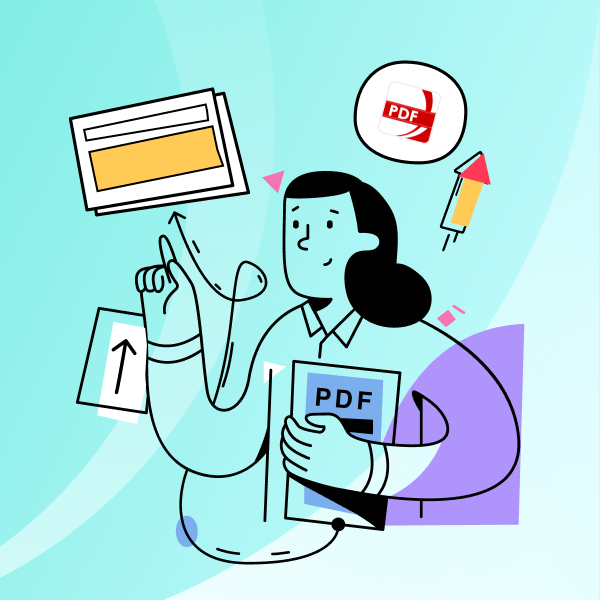Finding exemplary book reviews can offer college students invaluable insights into crafting their own compelling and analytical pieces.
This guide highlights five of the best book review examples, showcasing a range of approaches and critical techniques that can elevate your review writing to the next level.
Types of Book Reviews
- Critical Reviews: Get deep into the themes, structure, and style of the book, offering a comprehensive analysis. These reviews challenge students to think critically about the author's intentions, the societal context of the book, and its overall impact on the reader.
- Comparative Reviews: Encourage students to read and compare two or more books, often within the same genre or with similar themes. This type encourages broader reading and develops the ability to contrast and evaluate differing viewpoints or styles.
- Thematic Reviews: Focus on a specific theme or motif running through the book. Students can explore how the theme is developed, its relevance to today’s society, and its personal impact, encouraging a deeper connection with the material.
- Reflective Reviews: Allow students to connect the book's content with their own experiences or current events. This personal approach can deepen understanding and foster a more intimate exploration of the book's significance.
- Analytical Reviews: Break down the book's elements, such as character development, plot structure, and literary devices. This type sharpens students' analytical skills, teaching them to appreciate the craftsmanship behind writing.
Use Cases for Each Type of Book Review
1. Critical Reviews
Check out my review of @MichaelCoren's book titled Epiphany @JoeDallasTGP @PrestonSprinkle. We have lost our perspective of what is important. @becketcook https://t.co/mRaOIf5Wij
— Brian Black (@mostlyjesus) March 25, 2024
- Use Case: Ideal for literary courses focusing on in-depth textual analysis and interpretation.
- Book Examples: "To Kill a Mockingbird" by Harper Lee – analyze racial themes and moral complexity; "1984" by George Orwell – critique on totalitarian regimes and propaganda.
2. Comparative Reviews
Two of the best books I’ve read about space recently are @bleddb’s Original Sin and Mary-Jane Rubenstein’s Astrotopia. My comparative book review is now out at Astropolitics! https://t.co/xAlxhXjx0f
— Dr. Wendy Whitman Cobb (@DrWhitmanCobb) March 28, 2023
- Use Case: Suitable for courses exploring genre studies or thematic similarities across different works.
- Book Examples: "Brave New World" by Aldous Huxley vs. "1984" by George Orwell – contrasting visions of dystopia; "The Road" by Cormac McCarthy vs. "Station Eleven" by Emily St. John Mandel – survival narratives in post-apocalyptic settings.
3. Thematic Reviews
I’m super excited to share one of my largest reviews for @GeeksUnderGrace in a while! My book review of JRR Tolkien’s posthumous masterpiece The Silmarillion breaks down its history, content, thematic implications and accessibility! https://t.co/fZKY8H6kx2
— Tyler Hummel ⚓️ (@AntiSocialCriti) July 23, 2020
- Use Case: Works well in thematic studies courses or to explore specific societal issues through literature.
- Book Examples: "The Bell Jar" by Sylvia Plath explores mental health; "The Catcher in the Rye" by J.D. Salinger explores themes of alienation and teenage angst.
4. Reflective Reviews
The beautiful, reflective prose of #TheDetails by Ia Genberg, translated by @kiracecilia_ makes it one of my favourite books of 2023 and a great representation of #WITmonth 🌟🌟🌟🌟🌟 For my full review head over to https://t.co/3XPIsbQlSU #BookTwitter pic.twitter.com/iE6l1Q7k2o
— ROSEGOLD REPORTS (@rosegoldreports) August 24, 2023
- Use Case: Best for personal development courses or assignments aiming to connect literature with personal growth or social awareness.
- Book Examples: "Eat, Pray, Love" by Elizabeth Gilbert – reflections on self-discovery and personal change; "Wild" by Cheryl Strayed – personal transformation through overcoming physical and emotional challenges.
5. Analytical Reviews
go support this wonderful human being and his amazing and analytical book reviews. Rampage is 166% The Force Unscripted approved https://t.co/OWwR7n7wEN
— The Force Unscripted (@forceunscripted) February 12, 2024
- Use Case: Perfect for literary analysis courses emphasizing narrative techniques and the craft of writing.
- Book Examples: "The Great Gatsby" by F. Scott Fitzgerald examines symbolism and the American Dream; "Beloved" by Toni Morrison analyzes the narrative structure and themes of memory and identity.
Best Language for Book Reviews
The best language for book reviews strikes a balance between being informative, engaging, and critical, allowing the reader to understand the book's content, strengths, and areas for improvement. Here are some key elements to include in the language of a book review:
- Descriptive Yet Concise: Employ vivid yet concise descriptions of themes, settings, and characters.
- Objective and Subjective Balance: Blend personal reactions with objective analysis of the book's features and authorial intent.
- Evidence-Based Critique: Support opinions with specific examples from the book for a stronger, contextual critique.
- Respectful and Constructive: Offer criticism respectfully and constructively, focusing on improvement rather than dismissal.
- Accessible Vocabulary: Use clear, accessible language, avoiding jargon that could alienate some readers.
- Informative and Enlightening: Provide insights that enlighten readers about the book’s deeper aspects and contributions.
- Engagement with the Author's Purpose: Explore and assess the author's goals and the effectiveness of their execution.
- Comparative Insights: Situate the book within its genre or field through comparisons with similar works.
Our Recommended Tool When Writing Book Reviews
Our recommended tool for writing book reviews is PDF Reader Pro, thanks to its comprehensive set of features that significantly aid in the review process. Here’s how PDF Reader Pro can help:
- Annotation Tools: Use various annotation tools, such as highlighting, underlining, and sticky notes, to mark important passages or points of interest in digital books for later reference.

- Text Extraction: Easily extract quotes or sections from digital books into your book review document, ensuring accuracy in citations and references.

- OCR Functionality: Convert scanned pages of books or notes into searchable and editable text, making it easier to organize your thoughts and references.

- Document Organization: Use the file management system to organize your review materials, notes, and drafts in one place, boosting the writing process.
- Split View: Work with two documents side by side, allowing you to reference the book while drafting your review simultaneously.

- PDF Conversion and Creation: Create a polished, professional-looking review by converting your final draft into a PDF, or vice versa, for easy sharing and publication.

- Security Features: Protect your draft reviews and notes with encryption and password settings, ensuring your work remains confidential until ready for publishing.

Using PDF Reader Pro to write book reviews enhances efficiency and ensures that your reviews are thorough, well-documented, and professionally presented.
With its extensive tool library, use PDF Reader Pro for all your PDF-related needs!

Book Reviews for College Students: FAQ
How does a critical review differ from an analytical review?
A critical review assesses a book's overall contribution to its subject area, considering its strengths and weaknesses, while an analytical review breaks down the book's content to examine the author's use of themes, characters, and narrative structures.
Are there specific books suited for each type of review?
While any book can be reviewed through different lenses, some books might naturally lend themselves to certain types of reviews. For example, novels with rich thematic content are well-suited for thematic reviews, whereas books with notable stylistic elements might be ideal for analytical reviews.
How can college students choose the right type of review for their assignment?
Students should consider the assignment's goals, the book's primary features, and their own interests. Discussing options with instructors or peers can also provide clarity and direction.
Do these types of reviews require different writing approaches?
Yes, each review type demands a different focus and writing style. Comparative reviews need to balance the discussion of multiple works, while reflective reviews might adopt a more personal narrative tone.
Are there any common mistakes to avoid when writing book reviews?
Common pitfalls include summarizing the book too much without offering an analysis, neglecting to support claims with examples, and writing in an overly casual or informal style.








 Free Download
Free Download  Free Download
Free Download




